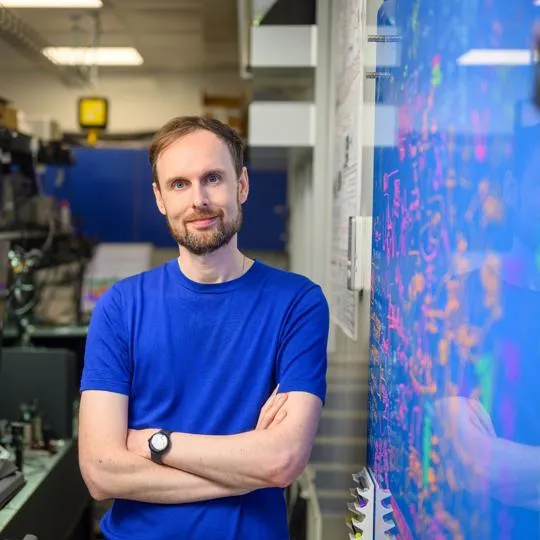LeviTeQ: Levitated Nanoparticles for Technology and Quantum Nanophysics
Technology is continuously miniaturising, and as it reaches the nanoscale we face unique challenges. How do we control such small objects? What happens when temperature fluctuations have the same energy scale as our devices? From the other direction, advances in the quantum physics of a few atoms, ions, and solid-state qubits mean that we increasingly wish to scale up quantum systems, or interface them with nanoscale technology.
Nano- and micro-mechanical devices have been controlled at the quantum level in recent years, an amazing advance allowing even entanglement between light and mechanical motion. However, all such small systems are limited by unavoidable environmental effects, such as thermal contact with the surroundings and energy dissipation through strain. This limits the participation of mechanical devices in both classical and quantum technologies.
By using a levitated nanoparticle as the mechanical device, these problems are overcome. This ultra-low dissipation system offers exquisite force sensitivity, through stable control over the rotation of a levitated nanorod. LeviTeQ will pioneer the integration of levitated nano-objects with electronic circuits, allowing electrical cooling, networking, control and sensing. This all-electrical system will challenge existing quartz crystal oscillator technology.
LeviTeQ will explore new regimes of physics, by working in extreme vacuum, elucidating thermodynamics on the nanoscale. This unique research will enable levitated nano-objects to participate in quantum technologies as long-lived quantum storage devices, and as high-fidelity transducers between optical and electronic quantum signals.
LeviTech will deliver immediate technological application via beyond state-of-the-art pressure sensing, using a highly inventive technique whereby non-linear motion yields zero-dissipation sensing.

Principal Investigator
Affiliations
Funding
Funding Body: European Comission
Amount: £1,198,415
Period: February 2019 - January 2024

